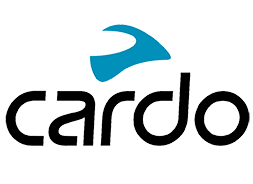
6 Great Motorcycle Industry Jobs for Riders
Source: sirtravelalot/Shutterstock
Some motorcycle riders like to keep their hobby and their profession separate. But if you truly eat, sleep and breathe motorcycles, you might not be able to wait for the weekend to indulge your passion. If that sounds like you, have you ever considered getting a job in the motorcycle industry?
You don’t have to be a pro racer to have a job that allows you to spend all day around motorcycles. Below, we’ll shine a spotlight on six motorcycle industry jobs that offer fulfilling paths into various sectors and levels of the industry.
1. Motorcycle Mechanic
Many of the most passionate motorcycle enthusiasts choose to express their love in the garage. Whether it’s a dealership shop with a steady stream of warranty work or a custom shop where you create whacked-out choppers and more, there’s plenty of room in the world of motorcycle mechanics for all types.
Some motorcycle mechanics have formal training, but practical experience counts a lot more when it comes to securing a job. However, getting a motorcycle technology certificate from a community college can open the door to higher-paying jobs and more opportunities.
2. Motorcycle Salesperson
Those who have motorcycle skills and people skills should consider entering the field of motorcycle sales. If you’ve ever found yourself in a two-hour conversation about motorcycles with a stranger in a bar, it’s often a surprisingly short step to the skills necessary to be an effective motorcycle salesperson.
A motorcycle salesperson’s job is, first and foremost, to help people find the bike that works for them. To that end, you’ll need a strong knowledge of motorcycles in general, and an encyclopedic knowledge of the products you’re selling. If you’re ready to start laying the groundwork, visit your local powersports dealership or race track and do some networking.
3. Motorcycle Writer
If you have a gift with words and a passion for horsepower, writing about motorcycles professionally could be a great opportunity for you. Whether you’re reviewing the latest motorcycle Bluetooth headsets or clueing readers in on the best dirt bike spots, there’s always room for a writer who knows their stuff.
Writers who are confident in their abilities can try cold-pitching some motorcycle content to major motorcycle publications. But an equally good way to get started is to build your own brand as a motorcycle blogger or social media personality. Someone who has a substantial following may be able to gain lucrative sponsorships or affiliate link money.

4. Motorcycle Vlogger
People make a living broadcasting themselves playing video games, so why not motorcycle riding? That’s the thinking of the many successful motorcycle vloggers who have made themselves into well-known figures in the motorcycle world through the power of the internet.
Of course, becoming a motovlogger requires a lot more than a helmet cam and a YouTube account. Aspiring motovloggers need to strive to create relevant content and add something new to the powersports conversation. Follow your passion, whether that’s exploring scenic vistas or tearing up a dirt track, and that’s where you’ll find your fanbase.
5. Motorcycle Detailer
Looking for something entry-level that’s easy to do part-time? Consider starting or joining a motorcycle detailing service! Motorcycle detailers bust out the wax, polish, wet wipes and soap to make a motorcycle sparkle like new.
You don’t need any formal education to do motorcycle detailing, but it’s a craft that you should spend some time mastering. Practice on your own bike and your friends’ bikes before offering your services to paying clients. Proper tools of the trade like boar’s hair brushes are also a must to ensure that you get maximum cleaning power while protecting the motorcycle.
6. Motorcycle Riding Instructor
Most motorcycle enthusiasts start off their riding career by taking a basic motorcycle riding class like the Motorcycle Safety Foundation’s Basic RiderCourse. (In many states, it’s part of the requirements to get a motorcycle license.) These courses need riding instructors who have a deep knowledge of motorcycle fundamentals and can teach these fundamentals effectively to new riders.
The path to success in this job starts with taking the course to become an MSF RiderCoach. A great way to get some experience is by mentoring riders who are new to motorcycling. Newbies can always use a friendly voice in their motorcycle intercom to give them pointers and help them gain confidence.

Source: Aleksandar Malivuk/Shutterstock
If you bleed fork oil and sweat chain wax, it might be time to listen to your heart and start looking for a job in the motorcycle industry. Want to start building and networking in a different way? You might like our guide to starting your own motorcycle club.
